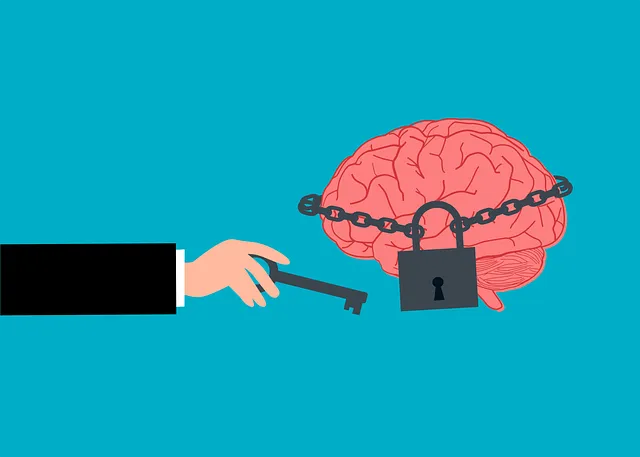Kaiser Permanente Behavioral Health Services Littleton offers evidence-based practices like CBT and mindfulness to empower individuals in mood regulation and emotional well-being. CBT identifies and changes negative thought patterns, while mindfulness cultivates present-moment awareness for stress reduction and mental balance. Lifestyle adjustments, including exercise, healthy eating, and sleep, combined with education and public campaigns, equip folks to manage moods effectively and build resilience against emotional challenges using Kaiser Permanente's comprehensive approach.
Discover effective mood regulation strategies, inspired by the expertise of Kaiser Permanente Behavioral Health Services Littleton. This comprehensive guide explores powerful tools such as Cognitive-Behavioral Therapy (CBT), mindfulness meditation, and lifestyle adjustments to enhance emotional well-being. Learn how these evidence-based practices can help navigate and manage moods, leading to improved mental health and overall life satisfaction.
- Understanding Mood Regulation: The Role of Kaiser Permanente Behavioral Health Services Littleton
- Cognitive-Behavioral Therapy (CBT): A Proven Strategy
- Mindfulness and Meditation Techniques for Daily Practice
- Lifestyle Adjustments for Enhanced Emotional Well-being
Understanding Mood Regulation: The Role of Kaiser Permanente Behavioral Health Services Littleton

Understanding Mood Regulation: The Role of Kaiser Permanente Behavioral Health Services Littleton
Mood regulation is a vital aspect of overall well-being, and effective strategies can significantly enhance one’s quality of life. Kaiser Permanente Behavioral Health Services Littleton plays a crucial role in empowering individuals to manage their moods and emotions healthily. Through evidence-based practices, the team at Littleton offers a range of services designed to foster inner strength development and resilience building.
The center recognizes that self-awareness exercises are essential tools for navigating emotional challenges. By providing a safe and supportive environment, they guide patients in identifying and understanding their feelings, thoughts, and triggers. This increased self-awareness forms the foundation for implementing effective mood regulation techniques, such as cognitive behavioral therapy (CBT) and mindfulness practices, which have been shown to be particularly beneficial in promoting positive mental health outcomes.
Cognitive-Behavioral Therapy (CBT): A Proven Strategy

Cognitive-Behavioral Therapy (CBT) has emerged as a powerful tool in the arsenal of Kaiser Permanente behavioral health services Littleton. This evidence-based approach focuses on identifying and changing negative thought patterns and behaviors, offering individuals practical strategies to manage their emotions and improve mental wellness. The Mental Wellness Podcast Series Production often highlights CBT’s effectiveness in treating various conditions, from anxiety and depression to post-traumatic stress disorder (PTSD).
By helping patients understand the connection between thoughts, feelings, and actions, CBT empowers them to challenge unhelpful cognitive distortions. This process facilitates a shift towards healthier thinking and behavior, ultimately contributing to enhanced resilience and overall well-being. The success of CBT has led to its integration into various Community Outreach Program Implementations, making mental health support more accessible and effective for those seeking stress reduction methods.
Mindfulness and Meditation Techniques for Daily Practice

Mindfulness and meditation have emerged as powerful tools within Kaiser Permanente behavioral health services Littleton, offering individuals practical strategies to regulate mood and enhance mental wellness. These ancient practices encourage a non-judgmental awareness of the present moment, fostering a sense of calm and emotional balance. Incorporating mindfulness into daily routines can significantly reduce stress levels and improve overall well-being.
The Community Outreach Program Implementation often highlights the benefits of mindfulness as a preventive measure for at-risk populations. By integrating simple meditation techniques, individuals can better manage their mental health and mitigate potential risks, as outlined in the Risk Assessment for Mental Health Professionals. Whether through guided meditations or mindful breathing exercises, these practices provide an accessible way to cultivate resilience and promote mental wellness within diverse communities.
Lifestyle Adjustments for Enhanced Emotional Well-being

Making lifestyle adjustments is a powerful tool for enhancing emotional well-being and managing moods effectively. The team at Kaiser Permanente behavioral health services Littleton offers valuable insights into this aspect of mental health care. They emphasize that creating a balanced routine can significantly impact an individual’s overall mental state. Simple yet effective changes like prioritizing regular exercise, adopting healthy eating habits, and ensuring adequate sleep can work wonders for regulating emotions. Engaging in physical activities releases endorphins, which are natural mood lifters, while a well-nourished body supports optimal brain function, leading to improved emotional resilience.
Additionally, incorporating mindfulness practices and stress management techniques into daily routines is encouraged by Kaiser Permanente’s behavioral health experts. Meditation, deep breathing exercises, and yoga are excellent tools for navigating life’s challenges with a calmer mindset. These practices have been shown to reduce symptoms of anxiety and depression, promote better sleep, and enhance overall emotional regulation. By combining these lifestyle adjustments with the support of mental health education programs design and public awareness campaigns development, individuals can take proactive steps towards sustaining positive emotional well-being.
In conclusion, effectively managing moods is a holistic process that involves understanding our emotional states and employing various strategies. Kaiser Permanente Behavioral Health Services Littleton plays a pivotal role in providing evidence-based approaches like Cognitive-Behavioral Therapy (CBT) to help individuals navigate their emotions. Integrating mindfulness practices and lifestyle adjustments further enriches this journey towards emotional well-being. By combining these techniques, one can harness their inner resilience, foster positive coping mechanisms, and lead a more balanced life.






